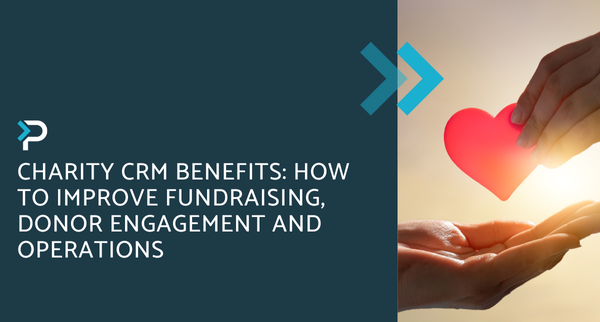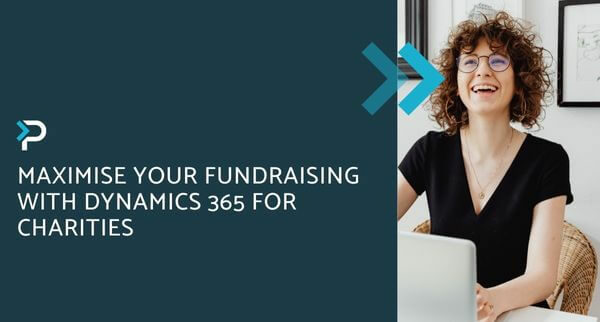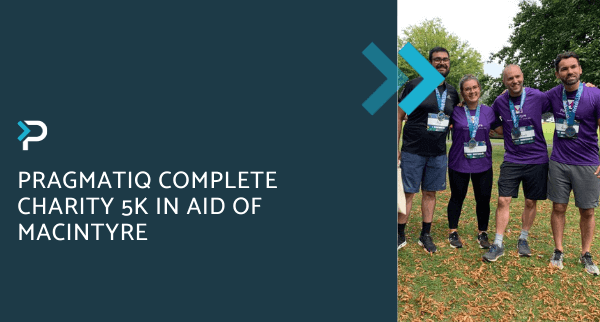The Top 5 Practices for Successful Donor Management
The Top 5 Practices for Successful Donor Management
August 18th, 2023
5 min read
Donors play a significant role in bringing a non-profit’s mission to life, without their support, many charities would struggle to accomplish their objectives. Therefore, a well-thought-out donor management strategy is vital, enabling you to develop meaningful connections with your donors, enhance engagement, and maximise each relationship to the fullest.
In this blog, we will explore the top five donor management practices that can help your non-profit develop solid, long-lasting relationships with your supporters:
- Invest in the Right Donor Management System
- Segment Donors to Create Personas
- Personalise Communications to Increase Engagement
- Turn One-time Donors into Recurring Supporters
- Analyse Donor Data to Spot Opportunities
5 Best Practices for Efficient Donor Management
1. Invest in the right Donor Management System
A donor management system, often referred to as a Charity CRM (Customer Relationship Management) system, is a software tool that centralises all donor-related information. There are various benefits investing in such a system including:
- Personalise Donor Campaigns: A good donor management system allows you to segment your donors based on various criteria, such as donation history, interests, engagement levels, and personal details. This clear access to all donor information enables personalised communication and targeted campaigns that resonate clearly with your donors.
- Track Key Fundraising Metrics: Easily keep track of all essential fundraising metrics, such as donation amounts, frequency of donations, top donors, retention rates and more. This data-driven approach helps optimise donor management strategies and improve overall fundraising performance.
- Identify Major or At-Risk Donors: With all information centralised within a single location, quickly identify donor-giving patterns and behaviours. Advanced AI functionality and analytics identify donors who may be at risk, or ready to make donations. This makes it easy to target the right donors at the right time, optimising fundraising efforts.
It is important to choose the right solution for your non-profit. Have a look at how Brighton Therapy Center implemented Dynamics 365 for Charities, which helped them increase referral turnaround by 100%, and establish an excellent reporting base. You can read more about the benefits of a charity CRM in our blog.
2. Segment donors to create personas
Donor management initiatives often begin with the segmentation of your supporters based on key differentiating criteria such as age, gender, and interests. Additionally, with the right software in place, it may also be possible to group your donors based on their donation history, engagement style, as well as their communication preferences.
By leveraging this information, non-profits can then create donor personas, which represent general depictions of their current supporters. These groups can help you visualise and better understand your contributors, making it easy to tailor your efforts according to their interests, preferences, and communication styles.
3. Personalise communications to increase engagement
Opting for generic, one-size-fits-all messages is often the easier and quicker approach when interacting with your donors. However, now more than ever, people want to feel a connection to the cause they are supporting. Personalising your communications to align with your contributors’ interests and motivations will help do this. As a result, donors are more likely to partake in your initiatives and support your mission.
In addition to creating personalised outreach, donor data can also be used to guide which communication channel is most effective for each of your donor segments. For example, younger donors might respond well to social media posts and videos, while older donors might prefer e-mail newsletters. This increases the likelihood that your intended target audience will interact with your message, enhancing engagement with your campaigns.
4. Turn one-time donors into recurring supporters
Staying in contact with your supporters before, during, and after their donation is crucial for developing deeper connections and, ultimately, encourages first-time donors into becoming recurring supporters. This is beneficial for your organisation’s longevity since regular donors are often found to be more valuable than one-time contributors.
One way in which your non-profit can achieve reoccurring donations is by sending regular, honest updates regarding your initiatives, impact, and success stories. Furthermore, because donors want to know the impact of their contributions, informing them about how their support has advanced your mission can help foster stronger connections with them.
5. Analyse Donor Data to Spot Opportunities
Understanding where opportunities lie within your existing and potential donors can be the key to creating successful outreach initiatives. However, gathering and analysing donor data can be a time-consuming, complex process that many charities do not have the resources for.
With solutions like Microsoft Power BI for Charities, you can streamline this task, allowing users to quickly track critical metrics and generate reports with easy-to-read graphs and charts. As a result, your non-profit can now easily monitor donor metrics such as contributions, history, engagement, as well as donation frequency, making it simple to spot any new opportunities. You can find out more about the benefits of Power Platform for charities here.
Developing lasting donor relationships requires time and resources, however, if done correctly, it can drive significant benefits for your non-profit organisation. We hope you have found the above donor management best practices useful and if you require any support, please reach out to Pragmatiq at info@pragmatiq.co.uk, call us on 01908 038110, or fill out the contact form.
Want to keep in touch?
Sign up to our newsletter for regular updates.
"*" indicates required fields


